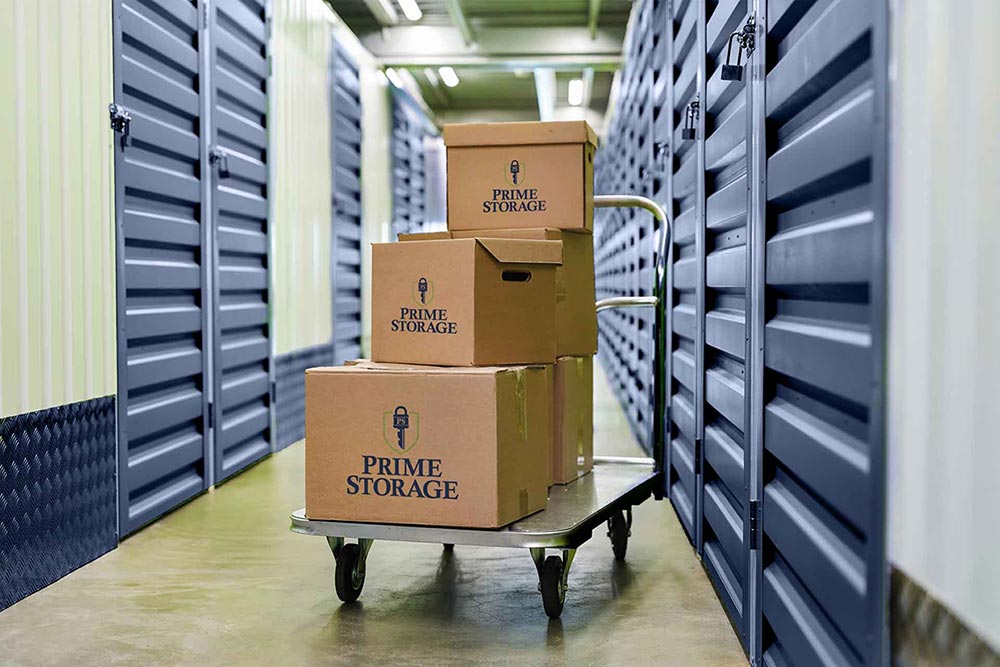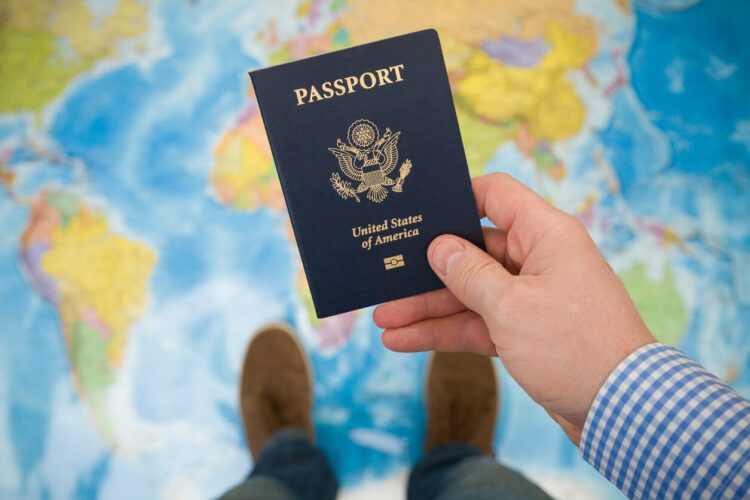
Let’s be honest; moving across the country requires a lot of logistical work. In addition to added expenses, a cross-country move involves mapping out routes, increased organization, and a slightly more complicated house-hunting process.
But moving from one city to another (or from coast to coast) doesn’t have to be a big ordeal. Prime Storage understands the unique challenges of a cross-country move and can help offset them with packing tips and temporary storage space solutions to keep your belongings between homes. Let us help you outline what it takes to efficiently plan and pack for a cross-country relocation.
Before the Move
Choose: Do It Yourself or Hire a Moving Company?
The first decision anyone moving from one part of the country to another should make is who will handle all the heavy lifting. Hiring movers is another expense, but it relieves much of the hassle. Not all of us are cut out to haul a mattress up several flights of stairs.
Moving companies can perform all sorts of services, from packing to loading and unloading your belongings from the truck. Each service raises the cost of moving with a company quite a bit, but it does free up time to plan other aspects of your move—like organizing and decorating or exploring your new community.
Ask the driver for a contact number.
A downside of moving across the country when you hire movers is that your belongings can take anywhere from a couple of days to a few weeks to get to your new home, depending on the distance. If you’ve chosen to hire someone, ask the driver for their contact information when possible. Your moving company should also provide a way to get in touch with or track the driver.

Create a moving checklist.
Who doesn’t love a list? Creating a moving checklist adds a sense of accomplishment in getting through your move and helps you stay organized. Of course, moving checklists may look different depending on your situation: moving a family of four involves more steps than packing up the contents of a single studio or loft, but the principles are all the same.
Create your home inventory.
Your home’s inventory is like a moving guidebook. It lists key details about your belongings and can be as thorough as you’d like. An inventory list can also help with packing items. But make sure to note and color code, when possible, what items are in which boxes and where in the home those boxes go. You’ll thank yourself later, especially if you hire movers. The more organized you are, the smoother packing and unpacking will be.
Use teamwork: divide and conquer.
Extra hands lighten the load. Do not take on the task of packing and organizing everything on your own if you can avoid it. Instead, designate each family member (or coerced friend) age-appropriate responsibilities. If you have kids, teach them how to appropriately pack boxes before starting, then let them handle the smaller items in their own rooms. Remember: pack non-essential items first, like family photos or seasonal clothing. The last things to go in boxes should be items you use regularly. No one wants to unpack a bunch of boxes when looking for toilet paper.
Make travel arrangements ahead of time.
If your move involves travel by air, bus, or train, book travel arrangements at least one month in advance, though earlier if possible. Waiting to book your travel may mean overspending on last-minute flights or—even worse—separating your family during the move. Just one more stressor you don’t need. So, do yourself a favor and plan any travel as far ahead as possible.
Handle all the utilities for both homes.
About two weeks before your move, contact your current utility companies and notify them of the moving date. Make sure they know to disconnect everything a day or two after your move. In addition, ensure you set up utilities at your new address. You might need to pay a deposit to start utility services at the new home, but it’s necessary to make your move easier. Nothing says a bad day like moving into a home and finding it has no power or running water.
Plan fun activities to help say goodbye.
Moving to a new state often means leaving behind loved ones, coworkers, and friends. So take the time to say goodbye and make a few extra memories with the people that count. This can be through a planned activity, spontaneous hangouts, or quality time in the weeks before your move. Adulting is hard, so take advantage of whenever your schedules align.
Moving Day
On moving day, it’s imperative to follow your plan as much as possible. Hopefully, you’ve laid good groundwork, and your move is as smooth as possible. Of course, many factors are outside our control, so don’t fret if there are any hiccups. You will get from point A to point B, even if it’s not exactly on schedule.

Entertain the kids.
Moving day is hectic enough without wrangling young children. If this is your family, consider finding a babysitter for the final stages of packing and loading. When it’s time to pile into the car or get on a plane, make sure plenty of activities are close at hand to keep everyone occupied during the trip. A bored child in an enclosed space will become everyone’s problem.
Pack important paperwork and valuables in your travel bag or vehicle.
Any small items of value—like jewelry, passports, and birth certificates—should stay with you. Pack these items in your suitcase or carry-on if you’re flying. You wouldn’t want to lose these items in the move, so save yourself the panic of trying to find them later.
Pack a moving day essentials bag.
Pack an essentials bag to bring with you that’s filled with easy-to-access items. This should include toiletries (a roll of toilet paper should be the first thing to go in the bag and the first thing you unpack), pet food if you’re traveling with animals, trash bags, a tool kit, wallets, extra shoes, and a few changes of clothes. Don’t forget the shower curtain—you’ll definitely want to wash up after a long day of travel, cleaning, and unpacking.
Days and Weeks After Your Move
You’ve made it to your new home but aren’t finished yet. The first thing to unpack is the essentials bag and any bedding you need for the night. Then move on to the kitchen. Unpack remaining items as necessary, but remember: you have plenty of time to go through this process. Not everything needs to be done in a day.
Try setting a schedule if you’re concerned about leaving too much unpacked. Plan to spend a set time or unpack a set number of boxes daily. If you need extra motivation, consider hosting a housewarming party after you’ve settled in. There’s nothing like company coming over to set you on a cleaning frenzy.
As you take your belongings out of boxes, check them over for any damage. This is especially important for valuable items like furniture or antiques. If you used a moving company, they should offer a small window to file claims if there are damaged items.
Get new paperwork.
It’s time to update your driver’s license and other paperwork if you haven’t already. Check your state’s guidelines for registering new vehicles and obtaining a driver’s license. Don’t forget to change your address. Doing so a week before your move can help provide valid proof of address required for your registration.
Not Moving to Your Forever Home? Find Storage Near You.
Moving across the country takes more time than expected, and finding the right forever home might not be an immediate option. In these cases, storing your belongings in a storage unit can give you the time and space you need to find the perfect place to live. As a bonus, many storage locations are staffed by individuals who can share helpful details about your new neighborhood. In addition, they can recommend restaurants and things to do to help you get acclimated.
Prime Storage can help with your cross-town or cross-country moves.
Whether your move takes you across town or to a new state, your nearest Prime Storage location can provide the residential storage you need. When Life Demands Space®, Prime Storage is here for you if you need moving supplies, packing tips, or temporary storage.





